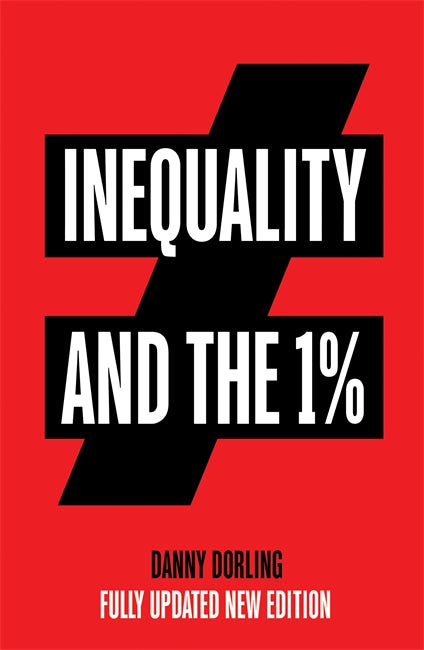ralentina reviewed Inequality and The 1% by Danny Dorling
Money is like muck, not good except it be spread
3 stars
One thing for which you cannot fault this book is not making its point clear: wealth inequalities are bad for society, and are especially outrageous when one considers the differences between the 1% and everyone else.
Each chapter looks at a different facet of the problem: education, taxes, health. Some are better than others, presumably reflecting Dorling's greater expertise and experience in some of these fields (for example, he's especially passionate and knowledgeable about education). There are a lot of figures and fun facts supporting the argument, and I wish I could impress them into my memory for future conversations, mixed in with some anecdotes and tirades that verge on the simplistic. I thought it was a great read, but maybe an editor could have cut it by ca 30%, removing secondary points and repetitions to turn it into a really sharp pamphlet that could be given also to people …
One thing for which you cannot fault this book is not making its point clear: wealth inequalities are bad for society, and are especially outrageous when one considers the differences between the 1% and everyone else.
Each chapter looks at a different facet of the problem: education, taxes, health. Some are better than others, presumably reflecting Dorling's greater expertise and experience in some of these fields (for example, he's especially passionate and knowledgeable about education). There are a lot of figures and fun facts supporting the argument, and I wish I could impress them into my memory for future conversations, mixed in with some anecdotes and tirades that verge on the simplistic. I thought it was a great read, but maybe an editor could have cut it by ca 30%, removing secondary points and repetitions to turn it into a really sharp pamphlet that could be given also to people who are not already convinced.
Some of those useful numbers and facts (even considering that the book is from 2014): * To qualify to be a member of the top 1% in the UK, you need a total household income, before tax, of about £160,000 a year - making it into the top 1 per cent in the US requires an annual income of at least $394,000. This is higher than the £160,000 in the UK because inequality in the US is greater. Getting into the top 10 per cent in the US requires an annual salary of at least $114,000 – more similar to that required to enter the UK top 10 per cent, but a little higher in real term. The average annual UK salary in 2013 was £24,596; but for the top 1 per cent their mean average was fifteen times as much: an average take-home income of £368,940.15 That is more than twice as much as the least well-off of the 1% received.
-
An investigation by the general practice magazine Pulse found that one in five of the GPs who sit on the boards of England’s 211 Clinical Commissioning Groups (CCGs) – the boards that decide how NHS budgets are spent locally – also had a stake in a private healthcare firm that was providing services to their own CCG.21
-
Among the 1%, 80% of those who are rich because of earnings (as opposed to inheritance) are men
-
When people try to argue that rich people are doing their share by paying more taxes, it is worth noting that the government currently collects only 26 per cent of its revenue through direct income tax. Value Added Tax and National Insurance account for 35 per cent of government revenue (which weigh more heavily on lower incomes).
-
On meritocracy, or rather (not unrelatedly), the extent of Boris' ignorance: <>

